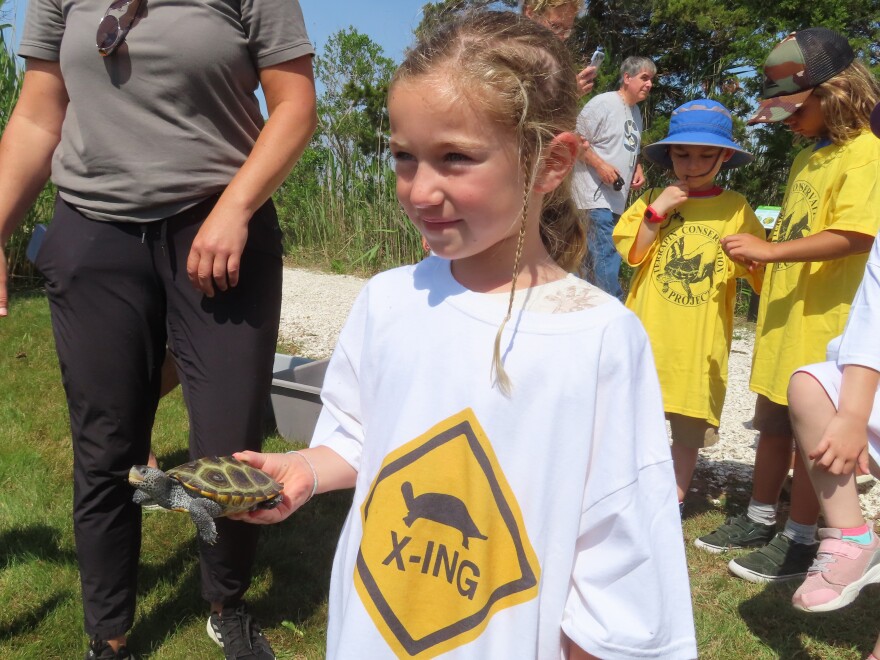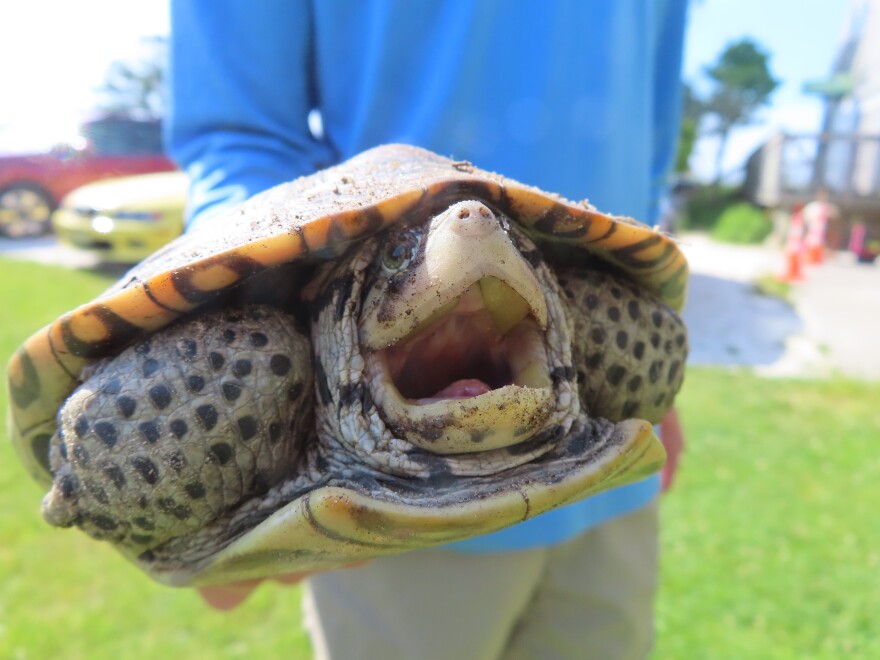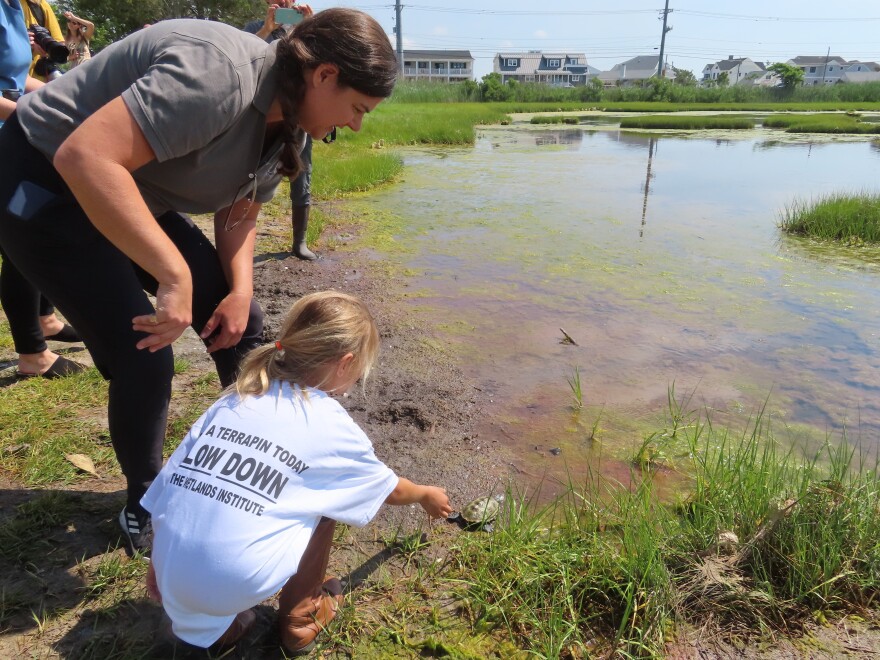A kindergarten class in Stone Harbor, N.J., recently said bon voyage to a group of 18 orphaned turtles as part of a program to rescue, raise and release the diamondback terrapins.
For more than 20 years, teeny kindergarteners have met their tiny turtles at the beginning of the school year and helped raise them before setting them free around this time of year. The latest batch has just been released into the wild.
"They live in this community, so it's important that they understand the threats to the species, their biology, what's important to them," said Lisa Ferguson, the director of research and conservation at the Wetlands Institute in Stone Harbor.
"Then at the end of that year, they come visit us for a program. They get T-shirts that have a turtle crossing on it, and then they get a chance to release their turtles back to the marsh."

They even sell cookies throughout the year with the proceeds going to diamondback terrapin conservation.
These little turtles are originally harvested as eggs from their mothers who were killed near the shore where they nest. The babies are raised in captivity for a year to give them time to mature before being returned to the wild.
Ferguson said it was a highlight of the year.
"When it comes time to release them, they're much larger, but so are the kindergartners," she said.

"They've been through a year of school. They're more confident. Some of them are very excited, and some of them a little bit more hesitant to hold them. But we help get the job done.
"They get to wave them goodbye, wish them well. And it's usually a pretty fantastic event of the year. For us, it's kind of a highlight of the season."
About 500 turtles are killed on New Jersey roads each year. Ferguson said unfortunately, the program couldn't replenish all of the turtles lost. But to help the long-term prospects of the species, they incubate hatchlings at a specific temperature to ensure they develop into females.

"We get to kind of watch these head starters and other wild turtles over the course of their lives and learn about their patterns, their conservation needs," Ferguson said.
"There are a lot of threats to salt marshes with flooding, sea level rise, climate change and trying to understand habitat availability and how those changes are affecting the population."
Ferguson hopes the kids in her program eventually will grow up to be lifelong turtle lovers.
Copyright 2022 NPR. To see more, visit https://www.npr.org.




